Question of Value (Blockchain - The New Decentralized Frontier)
Let's start at the top. What motivated you to learn crypto and blockchain?
My urge was based on a growing lack of trust with current legacy financial systems. Was also growing awareness about how big record labels exploit and mooch the artists. That was the primary motivating factor. As a techie or nerd, I had been following GameStop and AMC, as a story for a long time and it really opened my eyes on how I could access information and understand value systems. Stuff, which in the previous decades was privy to only key individuals of NYSE, Wall Street, Nikkie or any stock exchange for that matter. Long Live Redditors for making it open to public access.. possible!
I saw The Big Short by Adam Mcay, a film exploring the 2008 global financial crisis, many times over actually and started referencing videos and articles online related to the subject. Which then lead me deeper into research papers and started following Dr Michael P Burry (Scion Capital Management) on twitter. He is a visionary of sorts, predicting the 2008 crash well in advance, by years. At this point, between my music and professional work, I realised that opportunities exist everywhere, provided I have the capability to see them for what they are. By this I mean, to look into how the flow of money as well as trading and investments functions, which governs all commerce. Consequently I arrived at the gates of crypto and blockchain, and perhaps it being the solution to all major shortcomings of the current system that we live with... in a nutshell, one thing lead to another, leaping digital spaces and discovering new frontiers. Took a few years to get the hang of it actually.
Is NFT easy to understand for an artist who has no particular clue about the system?
To be precise, NFT's did require coding and heavy computation up until a few years ago. That changed rapidly, given the speed and proliferation of wireless information transfer and communications around the world. So now we have platforms, apps and systems that let you discover and explore with just a few clicks - the technology has been rapidly simplified in a sense. Similar to making your website today as compared to 10 years ago. So, entry level folks need not know all the technicalities, apprehending a lot of time, but they should understand the broader picture and logic behind NFT's. I would say now NFT requires a little time and learning, naturally speaking, to give wings to the artist or whoever wants to use it.
How did the 2020 pandemic effect the decentralized world? You personally?The pandemic is still going on! As of now, job markets are at an all time low and finance is stretched out! Governments' around the world have been printing money non-stop, which signals inflation and anyone who understands this knows that Crypto is deflationary in nature. Because crypto is fixed supply, finite amount, so even if nothing happens, with the passage of time it will rise in value. Unstable it is in terms of value as of now, yet that is just one aspect. Unlike how it's seen by the mainstream, blockchain and crypto has many other facets. Numerous new blockchain based portals were launched before the pandemic and even later... like new gateways, drawing millions of people... audiences to access music, art, film and creative stuff via blockchain services. It's a millennial thing also... much on that to speak of!
Personally I see an overall rise, not just in the value of bitcoin and other cryptocurrency, but also the proliferation of the technology. It is already in the 100 million people stage to begin with! From what I can foresee, one bitcoin could be worth a million dollars by 2025, based on it's current trajectory - a mathematical certainty? I am also keen on being part of the proliferation, of blockchain and autonomous systems for artists and especially musicians. The system has barely made it's presence felt in India, a country of 1.4 billion. It's just about 9% of that 1.4 billion.
Back to how can musicians (at a beginner level) utilize this technology?
I do get that question a lot these days. In a way, the same number and type of people who were using the internet in 1999, are the ones into this new technology today. We all know what happened after the massive proliferation of the internet post 2001. The tech-bubble and it's amazing free run till 2008 huh?! Hence, to utilize blockchain, just like the internet, you need zero understanding of how it actually works. Remember when we used to chat on IRL and go wow! Did we care how that small packet of information was zapping across the world, between two users? Yes, it is indeed beneficial to know more about blockchain, crypto and how this environment works, but it should not hold you back from using it. Also there's abundant online resources and advice. Like The BlockChain Village, where we specialize in assisting non-coders - creators and artists, with the basic blocks to begin with. Workshops and discussion groups. Also it's a global community... But that is not to say that we understand Blockchain completely. On the contrary, we are constantly learning and avoiding all sorts of misconceptions and pitfalls. It's not just about music and the musicians, but also publishing, royalties and audience interaction, that will be effected by blockchain and crypto. We might soon see these middlemen, agencies and ancillary organizations fading out.
Digging deeper, tell us what is going between music distribution and blockchain technology?
The primary function or call it utility of a Blockchain system is to automate processes. It can be for individuals, organizations or even across nations. Smart Contracts facilitate the transaction between clients. DAO (Digitally Autonomous organizations). Check out some lessons about Smart Contracts to begin with. They are rudimentary in nature - codes based on conditional "if" + "then" statements written in Solidity (for Ethereum). Please take a moment to look at Algocracy also! Back to smart-contracts, or call them transaction protocols, is not just financial in nature but can be also used for managerial and administrative tasks. For example, a giant corporation like Sony BMG could be revamped via Smart Contracts, over a period of time. By doing so, we could effectively achieve transparency, automation and increased speed, replacing physical labor and the involved number of people (hierarchy and bureaucracy). Even royalty collections and dispersion of profits can be automated (and monitored) via Smart Contracts - from the point of purchase (buyer) to the point of income (creators). A fair amount of music outside Spotify, Apple Music etc is now being 'consumed' within the above environment, surely set to climb, in terms of users and traffic in the near future.
For a complete newbie, I would suggest three things upfront. Understand storage (types of wallets, hot or cold, etc). There are various free wallets to start with. 2nd, check out how transfers work between wallets and networks. At a later stage, one can start playing with distribution, tokens, premiums, promotion etc on various websites and app-based services. That's just the gateway... Ethereum is a decentralized, open-source blockchain with smart contract functionality. For example, many musicians using Ethereum and Blockchain are commanding the price of their work. The number of tokens (say 10,000) generated by a given artist or user, for a particular new piece of music, an EP or a complete album. Similar token and tipping systems are also being applied to online live concerts. Fans and patrons in effect would fund the "entity" (music in this case) and consequently own it in a collective sense. The funding and benefits mechanism might seem complicated to begin with, yet it's a lot more democratic and transparent when compared to regular recording and licensing contracts dished out by record labels. In the real world, very few artists can actually call up their publisher to ask for transparent accounts and returns.
What's FOOF ?
In short, an upcoming public platform for publishing art (in it's many forms) as NFT. The content is intersectional - we call it 'transmedia' story telling. Envisioned by indie film-maker Q, FOOF will branch out to funding, investing, ticketing, selling and promotion via Blockchain. Part of the development, which I am involved in, putting together blockchain based protocols. Once open to public dispersion, we hope to foster levels of alliance and creativity, collective in nature. As of now we are at an alpha launch stage - bilingual version available in Bangla and English. Take a moment to check out FOOF!
And finally, the promise of autonomy or increased self-governance?
It’s definitely part of the incoming future... More people will opt for digital self-governance and transparency. Then, I feel it's important to create new spaces - not just for regular art, film and music - but also for the controversial, sensitive and mature subjects we face today. As I pointed out earlier, that decentralization of power and distribution is at the heart of all such Blockchain, Crypto, Open-Source and even some of AI, ML and VR technology. The practice of autonomy or self-governance has existed forever. Yet it needs new wings and tools. Take for example, SEED by Applied Sound & Ecology - a new alliance and residency, to empower artists and creators in India. Combing three disciplines, as well as creating much needed action towards ecology, environment and artist autonomy. The "promise" that you question is related directly to the investment and desire to move towards independent systems - for an individual or a group working together. To be honest, the transition is gradual. In the Blockchain environment, there is no 'de-platforming' and irrational censorship (now widely prevalent on Facebook, Twitter, YouTube etc). Given that change does not happen in a day or week or even months, the last ten years of this new technology has seen amazing growth, and the idea is to take it to the next level, for more people around the world...






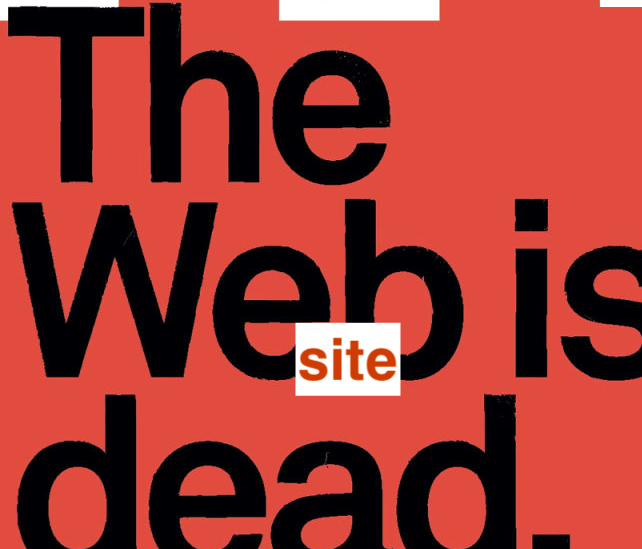
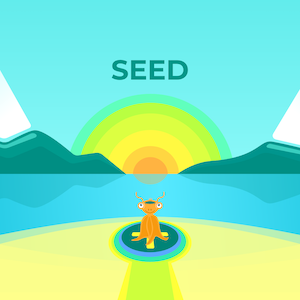
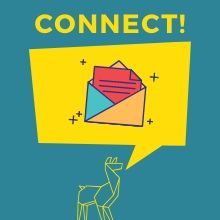



















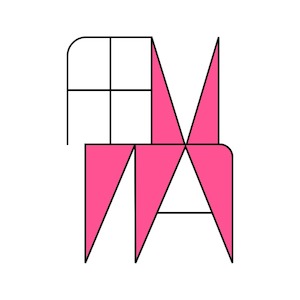

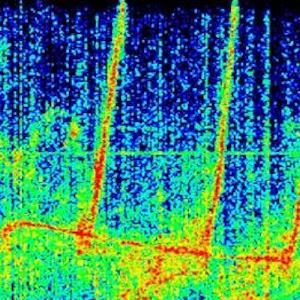
0 -